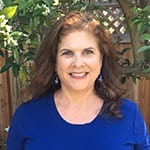Join live or receive a link to the recording and earn a CE certificate

- This event has passed.
What Makes Effective Coaching Programs: Lessons Learned from the Dynamic Learning Project
Wednesday, January 22, 2020 @ 4:00 pm - 5:00 pm EST

Presented by Mahsa Bakhshaei, Ph.D., Lead Research Scientist, Digital Promise; Angela Hardy, Research Analyst, Digital Promise; and Teresa Engler, Dynamic Learning Project K-12 District Technology and Instructional Coach, McGuffey School District
Hosted by Barbara Pape, Policy and Communications Director, Learner Variability Project, Digital Promise
Sponsored by Digital Promise
Get a CE Certificate for this edWebinar Learn more
Over the past decade, instructional coaching has increasingly attracted the interest of researchers and practitioners alike. The years between 2000 and 2015 saw the number of instructional coaches in U.S. schools double (Galey, 2016). We also know from empirical research that coaching is more effective than traditional PD workshop models in creating meaningful change in teacher practice and student achievement (Kraft, Blazer & Hogan, 2018). However, few empirical studies examine conditions that define the effectiveness of coaching programs in ways that support student engagement and learning.
In this edWebinar, practitioners and researchers discuss the attributes of an effective instructional coaching program. They use evidence from two pilot years of an instructional technology coaching program in 108 schools nationwide. The findings suggest that a successful instructional coaching program is a sustained, job-embedded PD, structured around a partnership between administrators, teachers, and coaches. In a successful program, teachers participate voluntarily to collaborate with coaches who provide personalized support in a non-evaluative manner.
In this edWebinar, we:
- Review research on the features of effective instructional coaching
- Better understand the roles and approaches that school administrations, coaches, and teachers can take to create a powerful coaching partnership
- Discover why teachers who participated voluntarily without fear of evaluation showed better outcomes
- Hear examples from a coach practitioner
This recorded edWebinar will be of benefit to teachers, librarians, school and district leaders, and instructional coaches of all grade levels.

Mahsa Bakhshaei, Ph.D., currently serves as Lead Research Scientist for the Dynamic Learning Project at Digital Promise. In her role, she leads the investigation on what makes effective coaching programs. She has more than ten years of experience conducting research in the educational achievement of students in underserved schools. She enjoys translating research to non-academic audiences so it can be used by practitioners and policymakers. She holds a Ph.D. in educational foundations from the University of Montreal.



Barbara Pape is the policy and communications director for the Learner Variability Project at Digital Promise. She has 20 years’ experience in strategic communications, writing, and policy analysis, primarily in education. Previously, she served as the executive producer of the award-winning Teaching & Learning conference, sponsored by the National Board for Professional Teaching Standards, where she developed content and oversaw outreach and communications. As a writer, she has written for numerous publications, including Harvard University, the National Education Goals Panel (U.S. Department of Education) and Parents magazine. Barbara also served as editor and publisher of the first electronically delivered education newsletter, the Daily Report Card. She served on the Advisory Board of the Kennedy Center’s Intersection of Arts Education and Special Education Committee, serves as a judge for the Miliken-Penn Graduate School of Education Business Plan competition, and is on the Boards at the Education Writers Association and Potentia. She earned an Ed.M. at Harvard University’s Graduate School of Education and launched her career as a middle school language arts teacher.
Join the Personalize Learning for Learner Variability community to network with educators, participate in online discussions, receive invitations to upcoming edWebinars, and view recordings of previous programs to earn CE certificates.


